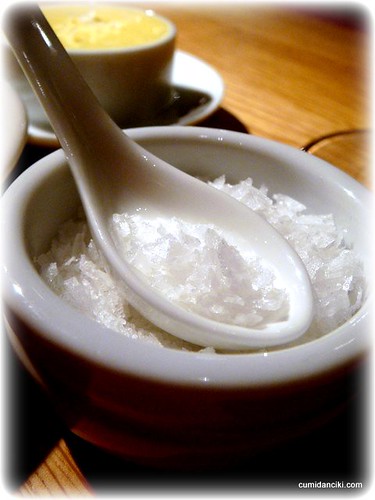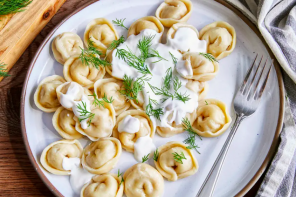SALT MYTHS
I can’t be eating too much salt because I don’t add it to my food – FALSE
About 75% of the salt we eat comes from everyday foods such as bread, some breakfast cereals, soups, sauces and sausages – so it’s easy to eat too much salt without adding any yourself.
Food has no flavour without salt – FALSE
If you’re used to foods that are high in salt, or adding lots of salt to your food, you could miss it when you first cut down. This is because our taste buds get used to high levels of salt. So, at first, you could find some foods bland without it.
But our taste buds can get used to eating less salt in about eight weeks and after that you’re more likely to enjoy food with less salt, or no salt at all. Salt can hide subtle flavours, so you might prefer some foods with less salt, once your taste buds have had time to adjust.
You can tell what foods are high in salt because they taste salty – FALSE
Some foods that are high in salt don’t taste very salty. Sometimes this is because they have lots of sugar in them as well, for example some breakfast cereals.
Also, our taste buds get used to high levels of salt, so you might not notice the saltiness of some foods. When people get used to eating less salt their taste buds become more sensitive. So sometimes when they eat a food they used to eat all the time, they are surprised to find how salty it tastes.
Only old people need to worry about how much salt they eat – FALSE
Eating too much salt can raise your blood pressure at any age. It’s true that you have less chance of developing heart disease or stroke in your 20s or 30s than when you’re older. But if you have high blood pressure when you’re young, you’re still at greater risk than someone the same age with normal blood pressure.
Sea salt is better for you than table salt – FALSE
It doesn’t matter how expensive salt is, where it’s from, or whether it comes in grains, crystals or flakes – it all contains sodium and it’s the sodium in salt that can raise your blood pressure if you have too much.
You need more salt in hot climates because you sweat so much – FALSE
We only lose a small amount of salt through sweat, even in extremely hot places. So there’s no need to eat more salt during hot weather. But it’s important to drink plenty of water to keep your body hydrated.
If I cut down on salt my body won’t have enough – FALSE
It’s actually very difficult to eat too little salt. This is because it’s in so many everyday foods, such as breakfast cereals, bread, soups, sauces and ketchup. And people in some countries survive on a fraction of the amount of salt eaten by people in the UK.
I’d know if I had high blood pressure – FALSE
Many people with high blood pressure have no symptoms, so you can’t assume that your blood pressure is normal if you haven’t had it tested. One in four people in the UK have high blood pressure and many of those don’t realise they have it.
back to top
Information from eatwell.gov.uk
What are you views on dietary salt? Do you automatically reach for the salt at the dinner table, or are you so sensitive you jump at even a pinch too much of it in your food? For me, I generally like my food low in sodium because I simply do not like the taste of overly salty food. Unless the food is really bland, i rarely reach for table salt.
There is merit in cutting back on salt because much salt can raise your blood pressure, which triples your risk of developing heart disease or stroke.
* Cutting down on salt reduces blood pressure, whether or not your blood pressure is high to start with.
* When your blood pressure goes down, your risk of developing heart disease and stroke goes down too, whatever your age.
* If you have high blood pressure, cutting down on salt could lower your blood pressure after four weeks. Try to make this a permanent change to carry on seeing the positive effects.
* You may start to notice a wider range of flavours in food, as your taste buds adjust to having less salt.
Adults should eat no more than 6g of salt a day. Reducing your average daily salt intake for adults to 6g (or less) could reduce your BP and save your life the long run!
Top of the morning to you this Tuesday.. and wishing you a stress free day and a low, steady B.P. Live Long and Prosper!








All things in moderation I say 😉 I didn’t know that we could get used to eating less salt within 8 weeks. Reduce salt intake will become less hamsap ke?
more ham.. less sap 😛
This is very good info! Thanks babe!
💡
Wah!!!!! ur like wikifoodia!
chis.. ru dissing me ar 😛 haha 😆
very useful info… thanks!
i think we can control ba… just dont put so much of salt when cooking..
if only we cook ourselves lar..
true, a lot of the time we have no control over what the cook puts in our food. However, we can make a conscious effort to,
1. tell the person – less salt please or,
2. stop adding extra salt to our food.
my mom must have read about this somewhere, shes very very careful with salt..
yar most ppl our parent’s age are. but i notice the younger ppl don’t really care so much about salt intake. I’ve seen ppl adding salt to their french fries (as if it’s not fatty and salty enough), to their food, and even to their desserts. I know it makes some santan based desserts taste better – everything in moderation is right though.
… But salt is yummy…. 🙁
(Obvs I’m a salt addict…. Should probably cut down tho – 2010 new resolution!)
well high BP is not yummie! u wanna live long and prosper better cut down a bit 😉
geez thanks for the wikifoodia info 😆 i’m not a big fan of salt too
velkam
Ha! I so agree! Me thanks my tongue for this.. as u can see i mostly complain of food being salty in my post, so I’m hoping that my salt-o-meter is on the right scale..
yar lor.. u very sensitive to salt one..